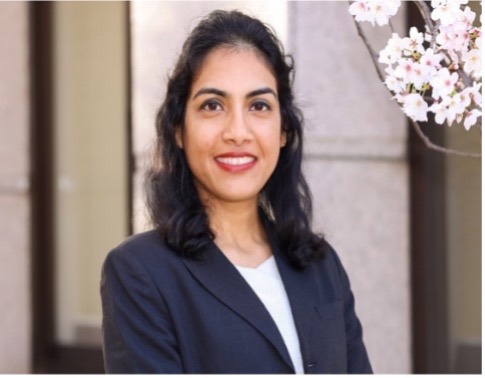The Ankara Center for Crisis and Policy Studies (ANKASAM) presents its interview with Associate Professor Dr. Astha Chadha from Ritsumeikan University’s Faculty of International Relations, focusing on the shifting security dynamics in the Indo-Pacific region, the approach to the concept of gender security in global politics, and the key factors shaping South Asia’s security challenges.
1.How do you think the security dynamics of the Indo-Pacific region have changed and evolved in recent years?
From being a maritime construct or a security vision of selected players, Indo-Pacific has now become the theatre of major geopolitical activity, including conflicts and contests over economic and territorial security. The evolution of the concept into a formal security policy has been propelled by decimating trust among nations as well as a challenge to the status quo in the region.
While the most discussed factors revolve around the status and shifting power dynamics among the US, European nations, China, other significant factors altering the perception of Indo-Pacific security include Global South’s challenge to the Western liberal order, quest for dominating supply chains, and rising voices from regional powers such as India, Vietnam and Brazil in global politics.
Newer domains of cooperation, including global commons have also created space for conflict such as militarization of outer space, unregulated cyberspace, and disparity in capabilities to deal with transnational threats of climate change or pandemics.
These issues will continue to dominate Indo-Pacific security discussions and will shape the emerging strategic partnerships and alliances in the region.
2. How is the concept of gender security addressed in global politics, in your opinion?
Gender security is part of the non-traditional security discourse that challenges the traditional state-centric concerns such as military threats, territorial integrity, etc. while overlooking concerns of human security, environmental security, or gender security. Thus, gender security has found expression in critical frameworks that seek to expand the definition of security, and focus on individual well-being as crucial to state objectives such as Women, Peace and Security (WPS) agenda.
These frameworks emphasize how disproportionate impact of conflicts on women and children can be effectively dealt with by making women frontrunners in peacebuilding, conflict/violence prevention, and decision-making processes.
Moreover, various structural issues weaken gender security and remain in need of resolution. These include:
- The insufficient mainstreaming of a gender perspective within state institutions and civil society organizations,
- The lack of political will to ensure greater female participation in political processes, leading to the perception of gender security as a secondary issue compared to other state priorities,
- The persistence of traditional and social norms that reinforce gender inequalities,
- The lack of funding for gender security-focused programs.
Unless these issues are effectively addressed, gender security will not find its rightful place in global security policies, and ensuring both the safety of women and their active, sustainable participation in peace processes will remain a challenge.
3. What are the key factors shaping security issues in South Asia?
South Asia’s security landscape is impacted by a complex set of factors due to the contentious history of the region, identity conflicts, economic disparity, lack of effective regional institutions, and political instability.
These have created a conducive environment for regional and extra-regional powers to engage in the region to pursue their own interests, while putting South Asian security and development prospects at risk. Colonial divisions of the Indian subcontinent have carved the South Asian region into a continuum of rival states with border disputes, resource conflicts, identity issues and heightened cross-border terrorism. Together with political instability, separatism and unaddressed environmental fragility, the region is among the most conflict-ridden in the Indo-Pacific, with the US, China, Russia, and European nations seeking influence and presence in the region.
Nuclear-armed triad of India-Pakistan-China have raised the stakes of armed conflict in the region while nullifying prospects of conflict resolution and trust-building.

